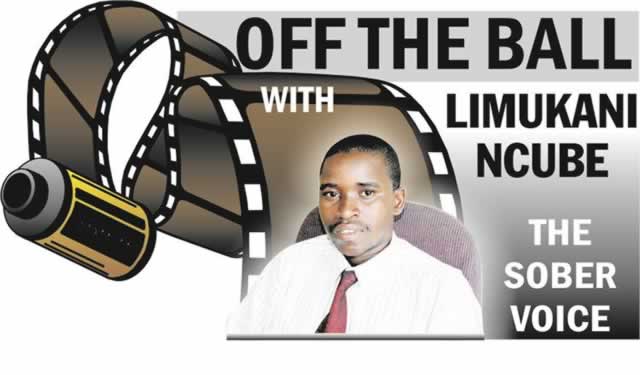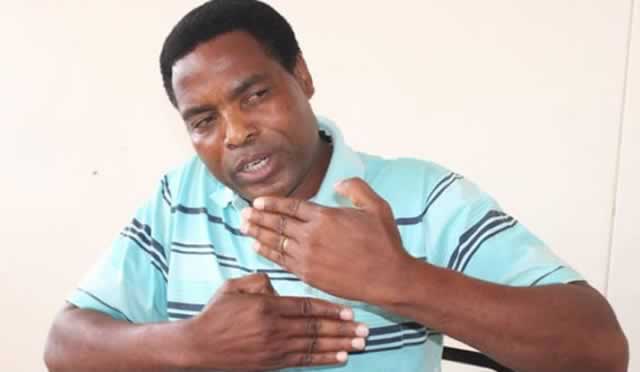Women also need leisure time outside home


A man mans a braai stand with meat and a pig on the spit. Men have more leisure time outside the home than women
Vaidah Mashangwa
HISTORICALLY females have been viewed as inferior to their male counterparts in all societies throughout the world. Women are oppressed and continue to be governed by men. While this is wrong, the low representation of women in decision making positions and ownership of resources still leaves a lot to be desired. Leviticus Chapter 27 Verses 3-4 points out that a male between 20 and 60 years old shall be valued at 50 shekels and if it is a female she shall be valued at 30 shekels.
While this is the case, the facts are that 52 percent of our population is female and roughly one out of seven families is headed by a woman hence people should not try to understand women by comparing them with men but that emphasis should be placed on understanding individual differences.
Researchers have pointed out that women have a leisure problem due to the multifaceted roles they play in the home. As such, women have less free time than men and that men spend more than twice the time of women in recreation. Even married women whether working outside the home or not continue to be responsible for the majority of household duties. Female duties amount to the 80 percent of the shopping, cooking and laundry and about two thirds of housecleaning, dishwashing and child care.
Further studies revealed that women spend 15 fewer hours a week than their husbands at leisure. Age and gender are the two variables closely related to recreation. Women when compared to men participate less in outdoor recreation, have different attitudes towards leisure and decrease their participation at an earlier stage than do their male counterparts.
The other hindrance element to women’s participation in leisure activities is that females are found at the bottom of the ladder in decision making, that is, lower status positions which also have less freedom. About 6 percent of women are managers. Most men are managers or general managers and chief executive officers of organisations and have time to play golf or tennis, for example, on Fridays.
Women therefore have fragmented leisure time and they find the preponderance of leisure in the home and through unstructured activities. Most women spend most of their time reading and watching television within the confines of the home. Even during weekends husbands prefer going out with friends rather than with the wives and children. Most women are usually depressed and are usually lonely.
There is also a marked difference in the quality and quantity of leisure between men and women. Studies revealed that men have pure leisure uncontaminated by family responsibilities. Women’s leisure on the other hand is usually rushed and lacks quality. A scene of a family on holiday at a beach resort would definitely show mothers and grandmothers dealing with cranky children while dads and grandfathers snooze in their lounge chairs.
At times women’s leisure is affected by lack of transport, fear of being out alone after dark and 40 percent of women pointed out that they were afraid of being raped. Convenient and safe transport is a vital vehicle to enable women’s access to most leisure activities. It is unfortunate that very few women own vehicles. A whole range of leisure is facilitated by car ownership. The use of public transport especially at night is equally dangerous to women.
Men are likely more than women to travel by car and to have access to a car for longer periods. At times women are rarely afforded the chance to drive the family vehicle, they have to beg for use of the family car. Some men too are twice as likely as women to hold driving licences. At times budgetary preferences do not accommodate driving lessons fees for women.
There is therefore need to create a conducive environment for women’s leisure. The most important step is to promote greater autonomy and power for women within relationships and in the wider society so that discriminatory attitudes and behaviour do not hinder women’s participation and freedom.
Leisure has three functions, that is, entertainment, relaxation and personal development, hence it is necessary for both women and men to participate in leisure activities. New knowledge and information is gained through interaction with other people. Apart from that, leisure provides a purpose for work activities as well as solace from life’s hardships and that is the reason why some men and women might prefer to spend time with friends and relatives. Leisure therefore shapes the total personality.
Many people resort to drinking and use of drugs as recreation but alcohol and drugs pose serious problems for public recreation. It is also a sign that society has grown bored of the more conventional and traditional forms of recreation or it could be a sign that recreation management organisations have failed to provide sufficiently diverse and adequately challenging recreation experiences. For most men and women nowadays recreation is not recreation if it is not coupled by alcohol consumption.
In one study though, some women pointed out that they had to deal with their own guilt in taking time and resources for use on their own. Women would prefer using that money for leisure to pay fees and bills. Occasionally too, they have to seek for permission from their spouses to leave home and most women who did never got the permission even if it meant going out as a women group.
It is very unfortunate that leisure activities are highly limited for both men and women with disabilities and the sports management bodies, local authorities and organisations responsible for people living with disabilities should ensure that more outdoor games are in place specifically for them.
· Vaidah Mashangwa is the Provincial Officer for Bulawayo in the Ministry of Women Affairs, Gender and Community Development. She can be contacted on 0772 111 592 or e-mail [email protected].










Comments